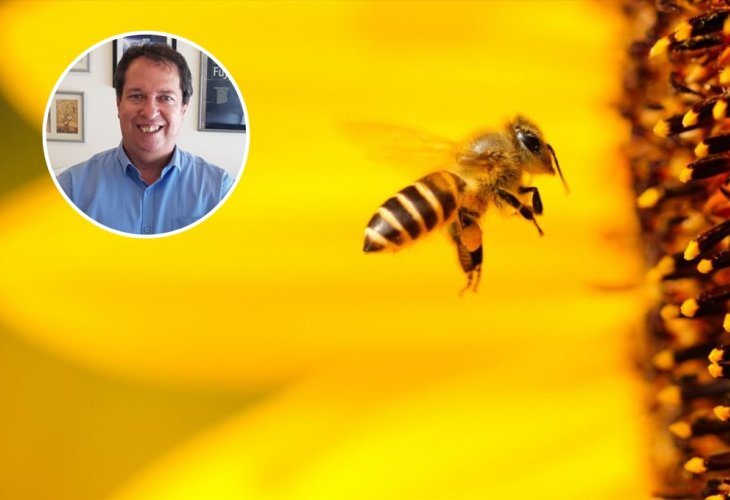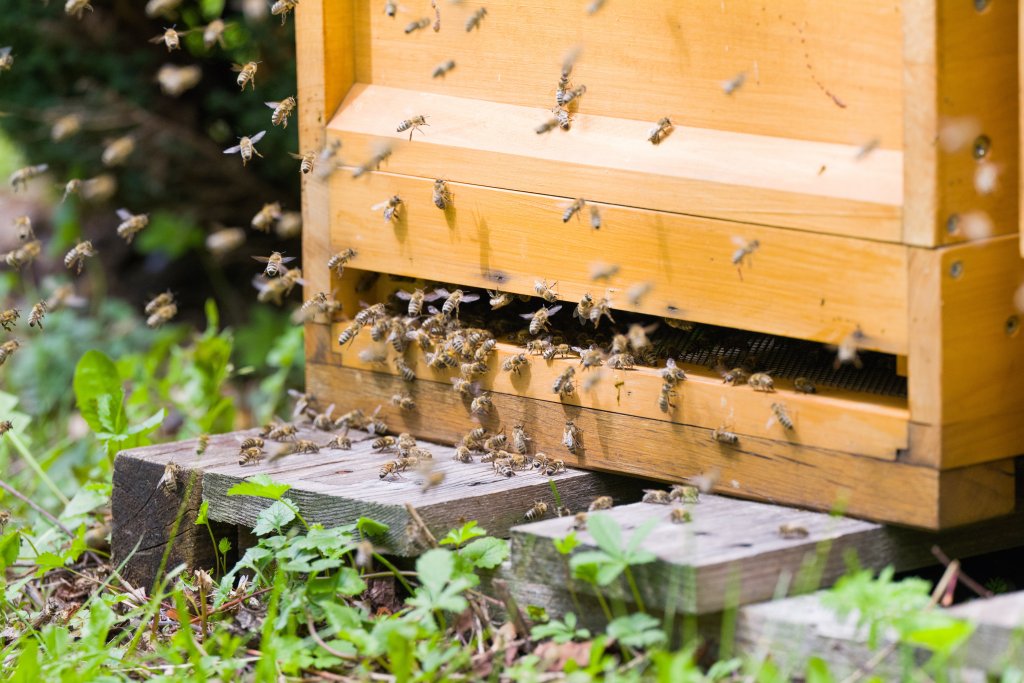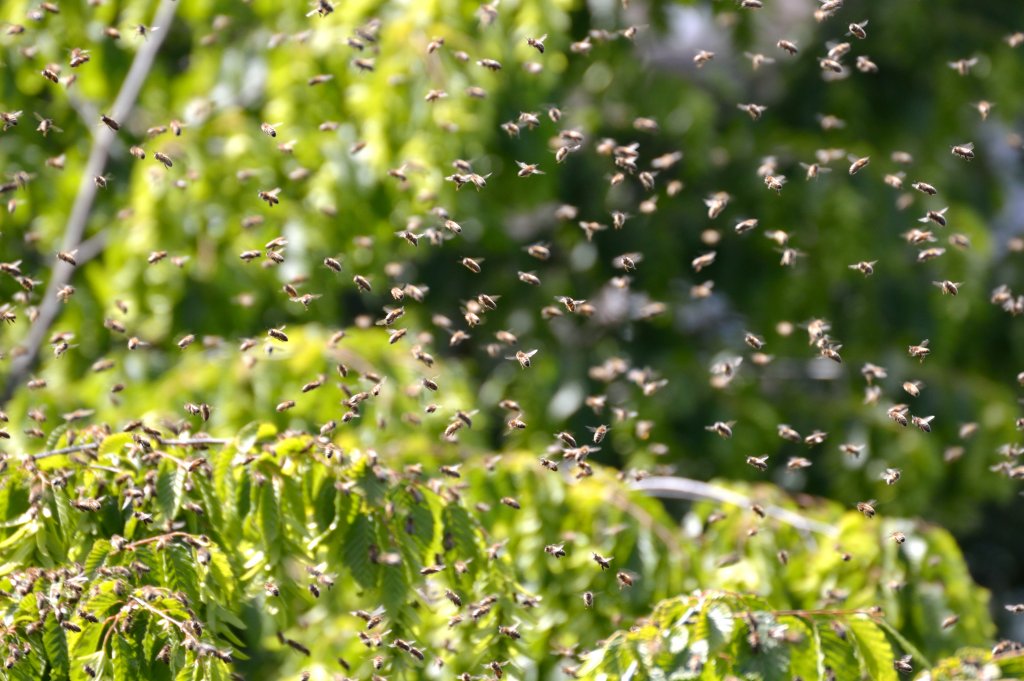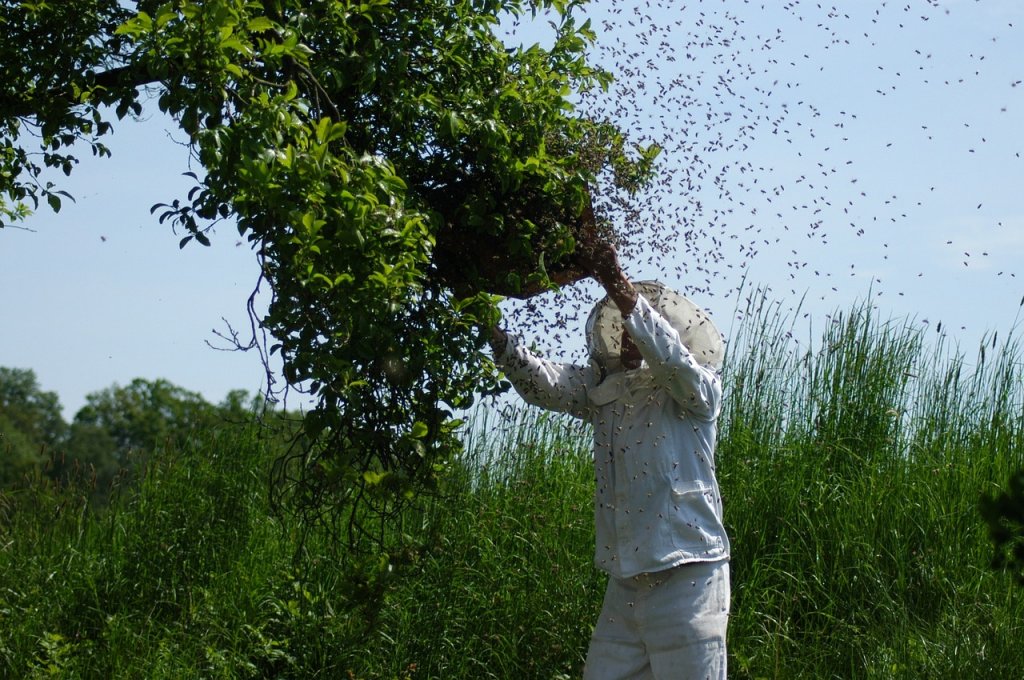Did You Know Bees Are Smart? You Won't Believe How Much
Bees can dance, "talk" with flowers, communicate with each other, and now it turns out they may even influence the weather. Professor Yoav Yair, Dean of the School of Sustainability at Reichman University and an expert in atmospheric and space research, shares this intriguing information.
 Prof. Yoav Yair (Credit: Pinhas Stern, CC BY-SA 4.0)
Prof. Yoav Yair (Credit: Pinhas Stern, CC BY-SA 4.0)Do you remember the general mourning that swept the residents of Britain at the passing of their Queen Elizabeth II? The whole world covered the mourning kingdom, yet one piece of news appeared puzzling: the royal beekeeper informed the bees in the royal hives that the queen had passed away, and also updated them that from now on, the new king, Charles III, would be their owner.
If you thought the beekeeper had lost his mind from grief, you’d be surprised to hear that he didn’t invent this ritual, as there is an ancient British tradition that requires those responsible for the royal hives to update the bees on any significant events occurring in the kingdom, such as deaths or marriages. According to the tradition, if this significant information isn't shared with them, they might cease honey production or even abandon the hive.

The Influential Bees
At this point, there is still no clear scientific evidence that bees indeed understand the significant events humans experience (although there are some who certainly believe so), but Nina Sudin, a reporter for 'Zavit,' notes that researchers have already proven that bees have remarkable abilities in various other fields: they can communicate with each other through dance, they have the ability to build hives in a highly efficient and extraordinary way, and can even "talk" to flowers to locate their food.
Recently, a fascinating study has been added, revealing another impressive ability of these amazing creatures, suggesting that bees carry an electric charge so strong that it's even more impactful than meteorological phenomena, such as storm clouds which can create lightning due to the electrical tension between them and the ground.
Professor Yoav Yair, Dean of the School of Sustainability at Reichman University and an expert in atmospheric and space research, talks about this interesting study. It turns out that during the bees' flight, they encounter electrically charged molecules and thus become charged themselves. Additionally, their wing flapping is very fast—over 200 flaps per second—and may cause electron movement between molecules, thereby altering their electric charge. (Much like the static electricity created by rubbing with a balloon).
 Prof. Yoav Yair (Credit: Pinhas Stern, CC BY-SA 4.0)
Prof. Yoav Yair (Credit: Pinhas Stern, CC BY-SA 4.0)How did researchers discover this powerful charge, and how is it that they didn't know about it until now?
According to Sudin, until now, this data was completely unknown and was discovered quite by accident, when British researchers were monitoring the weather at the University of Bristol area. The researchers noticed an unexpected increase in the electric field present in the atmosphere around them. Since there were no storms in the area that could cause such a change, the researchers tried examining their surroundings and then discovered a massive swarm of honeybees. It still seemed like a coincidence, but they decided to check: they began monitoring the electric field with special detectors and even used video cameras to track the density of the bee swarm. "After they measured the field intensity and the number of bees in the swarm, the researchers calculated the charge density—that is, the amount of electric charge per unit volume of bee swarms," explains Prof. Yair.


For comparison—when the weather is balanced and there are no special natural phenomena, an electric field strength of about 130 volts per meter can be measured in the air, while the new study revealed that where the bees were, an electric field measuring 100-1000 volts per meter was created. In other words—the electric field they generated was almost eight times stronger than the electric field present in the air in areas without bees. Additionally, the study found that the denser the area, the higher the electric field strength. As a result, researchers hypothesized that the electric field bees create could even influence the weather—for example, causing clouds to gather or speeding up their transformation into rain.
It seems that this research has great importance, as it is further evidence of the unique power of bees, upon which ultimately some of our food depends. These days, when their presence is threatened due to the damage from the climate crisis, this is a topic that needs to be examined, as it certainly may have an impact on all of us.
The article was prepared by 'Zavit,' the news agency of the Israeli Society of Ecology and Environmental Sciences.

